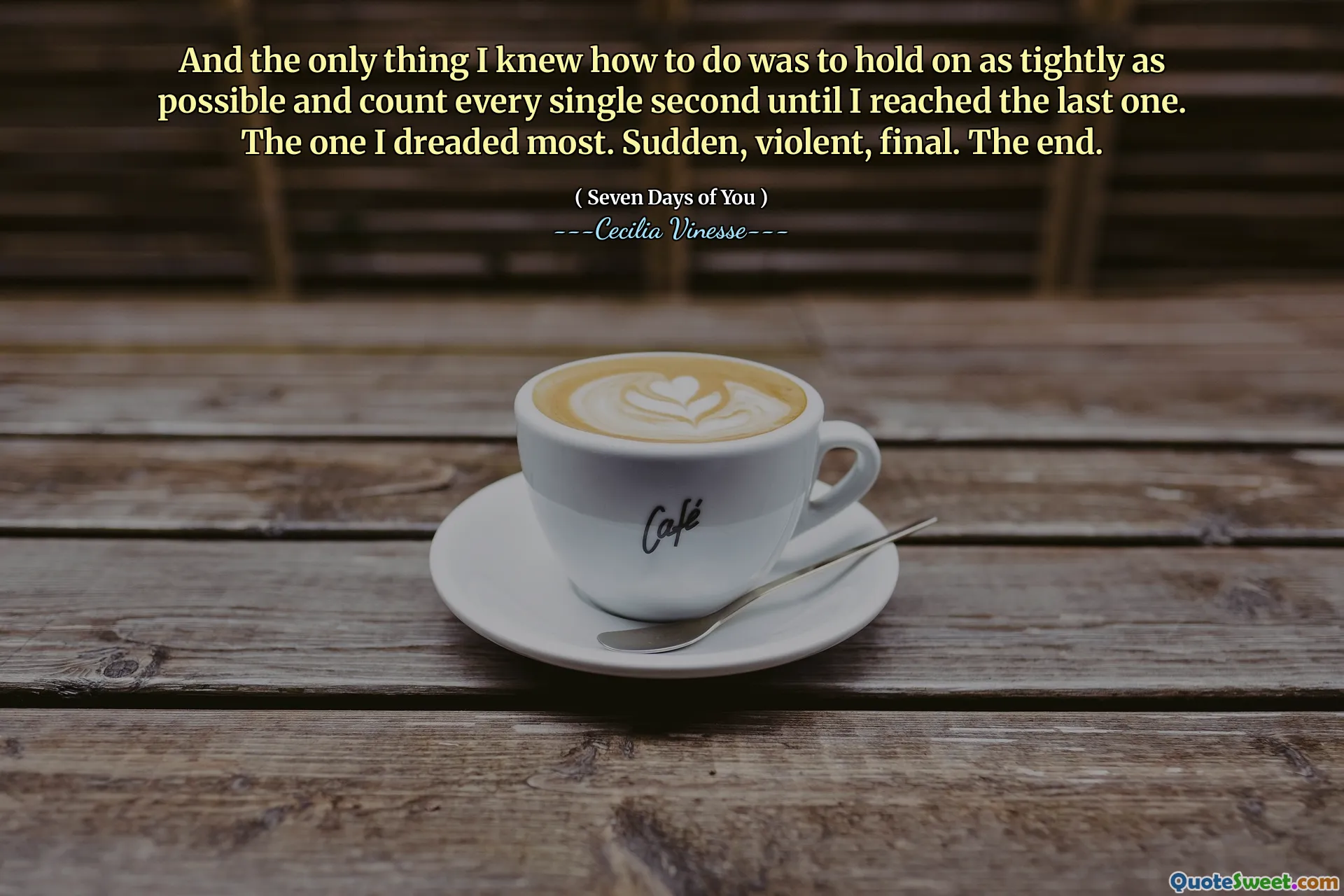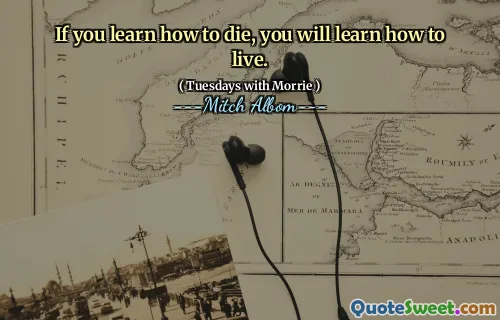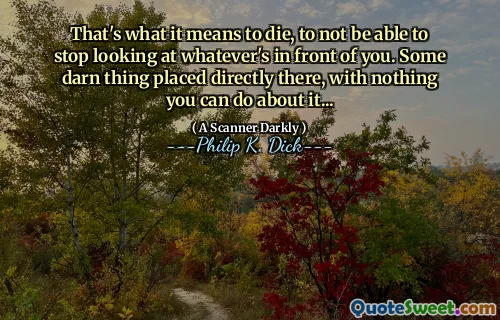
And the only thing I knew how to do was to hold on as tightly as possible and count every single second until I reached the last one. The one I dreaded most. Sudden, violent, final. The end.
This quote captures an intense moment of apprehension and resignation in the face of inevitable loss or termination. The act of holding on tightly symbolizes a desperate attempt to cling to what is familiar, safe, and precious amid the chaos of uncertainty. Counting each second reflects a heightened awareness of fleeting time, emphasizing the painful anticipation of the unavoidable conclusion. The mention of the final, violent end evokes the abruptness and trauma associated with endings—be they emotional, life-threatening, or existential. It resonates with the human tendency to resist change and cling to stability even when such efforts are futile. The sentiment expressed here dives deep into the emotional turmoil experienced when confronting unacceptable truths or unavoidable fate. Such moments compel us to reflect on how we cope with loss: do we try to delay it, brace ourselves for its inevitability, or accept it with resignation? In literature and real life, this visceral depiction underscores the universal struggle against mortality, heartbreak, or irreversible change. It reminds us of the human capacity for resilience as well as vulnerability—the desire to preserve, to savor the remaining moments, and to confront the finality with courage or fear. Overall, it serves as a poignant reminder of our fragility and the profound emotions wired into how we handle life's most challenging transitions.



